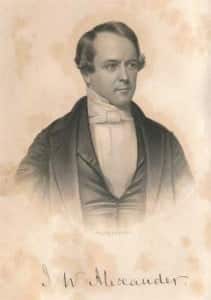STUDIES IN THE WESTMINSTER SHORTER CATECHISM
by Rev. Leonard T. Van Horn
Q. 18. Wherein consists the sinfulness of that estate whereinto man fell?
A. The sinfulness of that estate wherein man fell, consists in the guilt of Adam’s first sin, the want of original righteousness, and the corruption of his whole nature, which is commonly called original sin; together with all actual transgressions which proceed from it.
Scripture References: Rom. 5:12,19; I Cor. 15:22; Rom. 5:6; Eph. 2:1-3; James 1: 14-15.
Questions:
1. What is original sin?
A better way of expressing this would be “inherited sin.” This sin is the guilt and pollution connected with our origin, in and through the first Adam.
2. Is there not another type of sin besides original sin?
Yes, there is actual sin. This is any breach of God’s law, whether it be by omission or commission, whether it be by thought, word or deed.
3. How are all men guilty because of Adam’s first sin?
All men are guilty of Adam’s first sin by imputation, (Ram. 5:19). This is so because Adam represented his posterity, as we learned in Question 16. As the righteousness of Christ, the second Adam, is imputed to all believers, so the sin of the first Adam is imputed to all the natural seed.
4. What is meant by the “guilt of Adam’s first sin”?
It means the debt, the punishment to which we are exposed because of that first sin, committed by our head and representative, Adam.
5. What is the teaching involved in “the want of original righteousness”?
The teaching here is that two things are involved:
(a) The lack of true spiritual understanding in the mind (I Cor. 2:14).
(b) The lack of the power and inclination toward good (Rom. 7: 18).
6. What is included in the statement “the corruption of his whole nature”?
Included in this statement is the universal depravity present in every part of man since the fall. Calvin states, “Therefore all of us, who have descended from impure seed, are born infected with the contagion of sin. In fact, before we saw the light of this life we were soiled and spotted in God’s sight.” (Calvin’s Institutes, II, 1,5).
ORIGINAL SIN
The lack of belief in this doctrine is probably one of the greatest motivators of mankind toward their popular and many times stated position of: “Well, I do my best and we are all trying to get to the same place. I’ll simply take my chances on my best for a loving God would not condemn me.” This position is heard time and time again and it is hard to take offensive action against it when the person stating it does not believe in the Bible as the inspired, infallible Word of God.
The Presbyterian Standards are very clear about this matter of Original Sin and its effects on mankind. Of the “corrupted nature” the Standards tell us that “we are utterly indisposed, disabled, and made opposite to all good, and wholly inclined to all evil” and from this corrupted nature “proceed all actual transgressions”. The Standards further teach that this condition is innate from birth and by nature. It is at this very place that so many modern thinkers disagree with the Standards and insist that there is an “inner goodness in man” and insist that man is rapidly making progress. It is from this position that they move to the natural result that if man does his best he will be taken care of by the loving God.
And yet if a person of the world is forced to be honest with himself, forced because of sickness, or impending death, or trouble of any great variety, he recognizes inward evidences of the corruption of his nature. He recognizes that naturally speaking he does not want to listen to the words that will keep him from erring. He recognizes that he puts all his hope in himself. He recognizes that his body is more important to him than his soul. It is significant that when the person of the world is saved by grace he does not have to be “forced” to be honest with himself in this way, he knows it!
What can all of us learn from this doctrine? The person not saved by grace will learn little from it until he comes to the realization of his sinful state. The person saved by grace can learn once again “Wonder of wonders, He saved even me!” He can thank and praise God once again for the teaching of Ephesians 2:1-10. He can witness to others of the pardon that comes through the merits of Jesus Christ.

